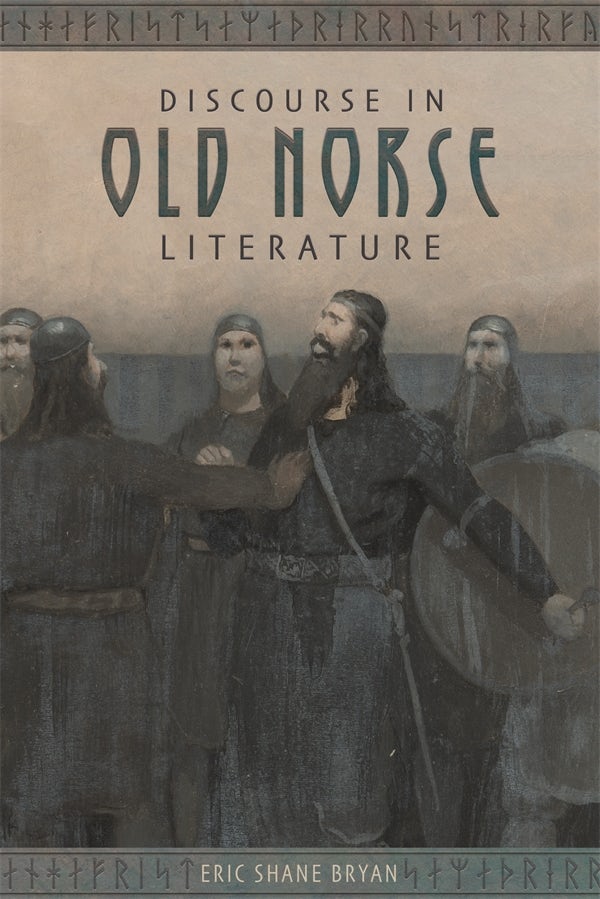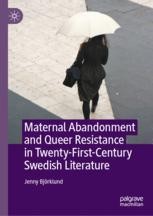Discourse in Old Norse literature
 An examination of what dialogues and direct speech in Old Norse literature can convey and mean, beyond their immediate face-value.
An examination of what dialogues and direct speech in Old Norse literature can convey and mean, beyond their immediate face-value.
The vast and diverse corpus of Old Norse literature preserves the language spoken not only by the Vikings, kings, and heroes of medieval Scandinavia but also by outlaws, missionaries, and farmers. Scholars have long recognized that the wealth of verbal exchanges in Old Norse sagas presents the modern reader with the opportunity to speak face-to-face, as it were, with these great voices of the past. However, despite the importance of verbal exchanges in the sagas, there has been no book-length study of discourse in Old Norse literature since 1935.
This book meets the need for such a study by offering a literary analysis based on the adjacent field of pragmatic linguistics, which recognizes that speakers often rely upon cultural, situational, and interpersonal context to communicate their meaning. The resulting, context-dependent meaning often deviates from the base semantic and syntactical components of an utterance: speakers hedge, imply, deflect to save face, or obscure meaning to damage an opponent’s self-worth. Saga writers, this book argues, were masters of this type of indirectness in speech. It aims therefore to unlock the depth and subtlety of discourse in Old Norse literature and to leave readers with an understanding of how principles of pragmatics were employed throughout the sagas. A wide body of Old Norse materials is examined, including some of the best examples of Íslendingasögur (sagas of Icelanders), such as Brennu-Njáls saga, Laxdœla saga, and Gísla saga Súrssonar, while also giving due attention to Konungasögur (kings‘ sagas), fornaldarsögur (legendary sagas), and other literature from the medieval North.
zum Buch im ULB-Katalog
zum Buch auf der Verlags-Website
Maternal abandonment and queer resistance in twenty-first-century Swedish literature
 This book questions why so many mothers leave their families in twenty-first-century Swedish literature, analyzing literary representations of maternal abandonment in relation to sociopolitical discourses. The volume draws on a queer-theoretical framework in order to highlight norm-critical dimensions, failure, and resistance in literature about motherhood. Jenny Björklund argues that novels about mothers who leave can be understood as ways to problematize and challenge Swedish-branded values like gender equality and a progressive family politics that promotes ideals of involved parenthood, the nuclear family, and pronatalism. The book also raises questions beyond the Swedish context about maternal ambivalence, family politics, and privilege and discusses how literature can work as resistance and provide alternatives to the current social order.
This book questions why so many mothers leave their families in twenty-first-century Swedish literature, analyzing literary representations of maternal abandonment in relation to sociopolitical discourses. The volume draws on a queer-theoretical framework in order to highlight norm-critical dimensions, failure, and resistance in literature about motherhood. Jenny Björklund argues that novels about mothers who leave can be understood as ways to problematize and challenge Swedish-branded values like gender equality and a progressive family politics that promotes ideals of involved parenthood, the nuclear family, and pronatalism. The book also raises questions beyond the Swedish context about maternal ambivalence, family politics, and privilege and discusses how literature can work as resistance and provide alternatives to the current social order.
zum Buch im ULB-Katalog
zum Buch auf der Verlags-Website
Weitere Titel können Sie in unseren Neuerwerbungslisten für die Nordische Philologie entdecken!
